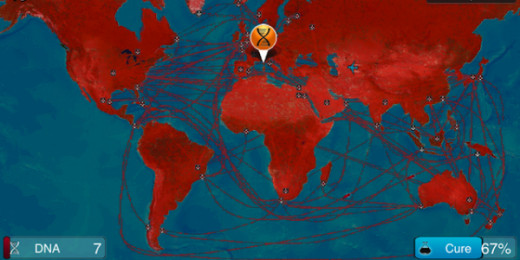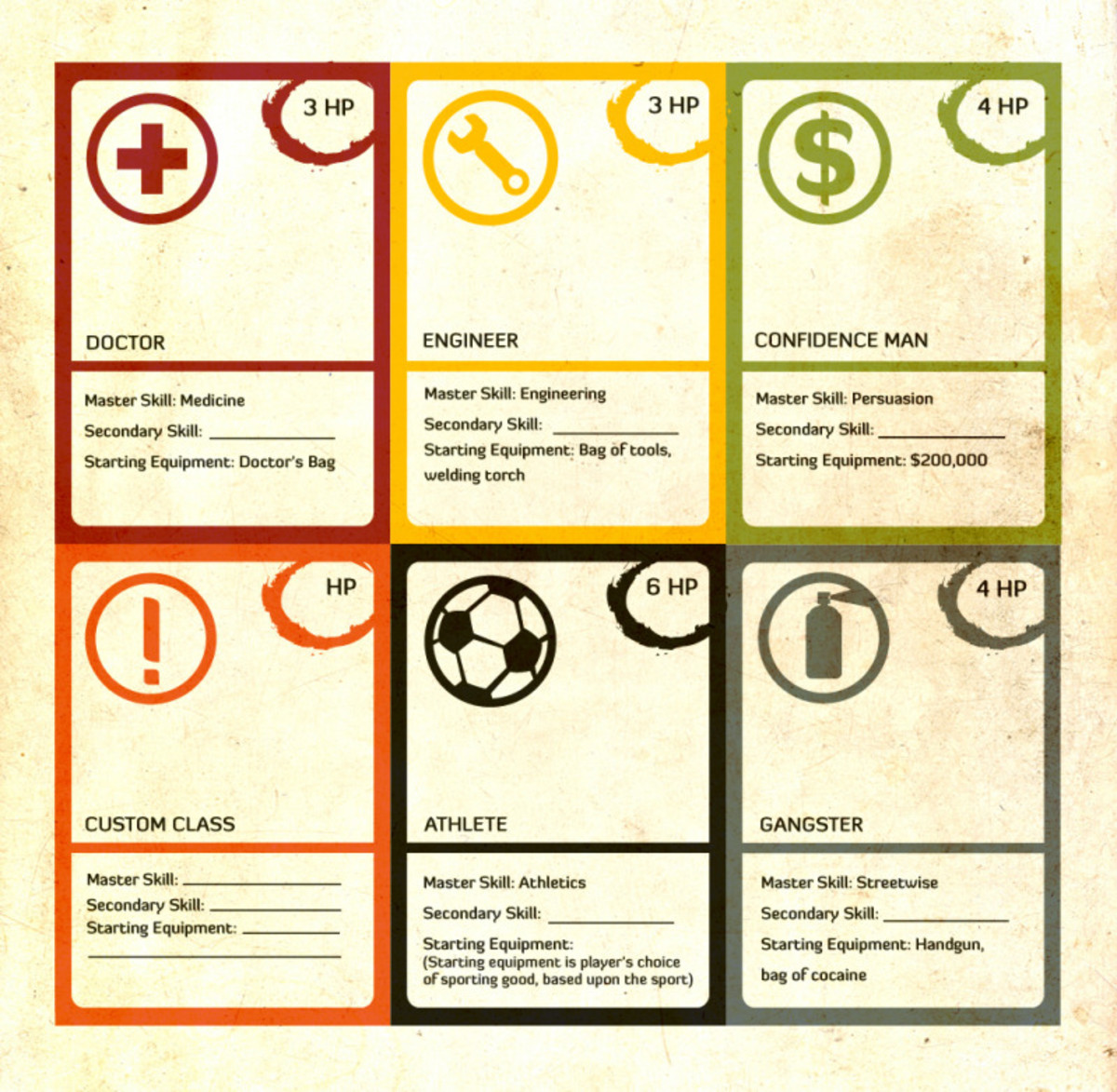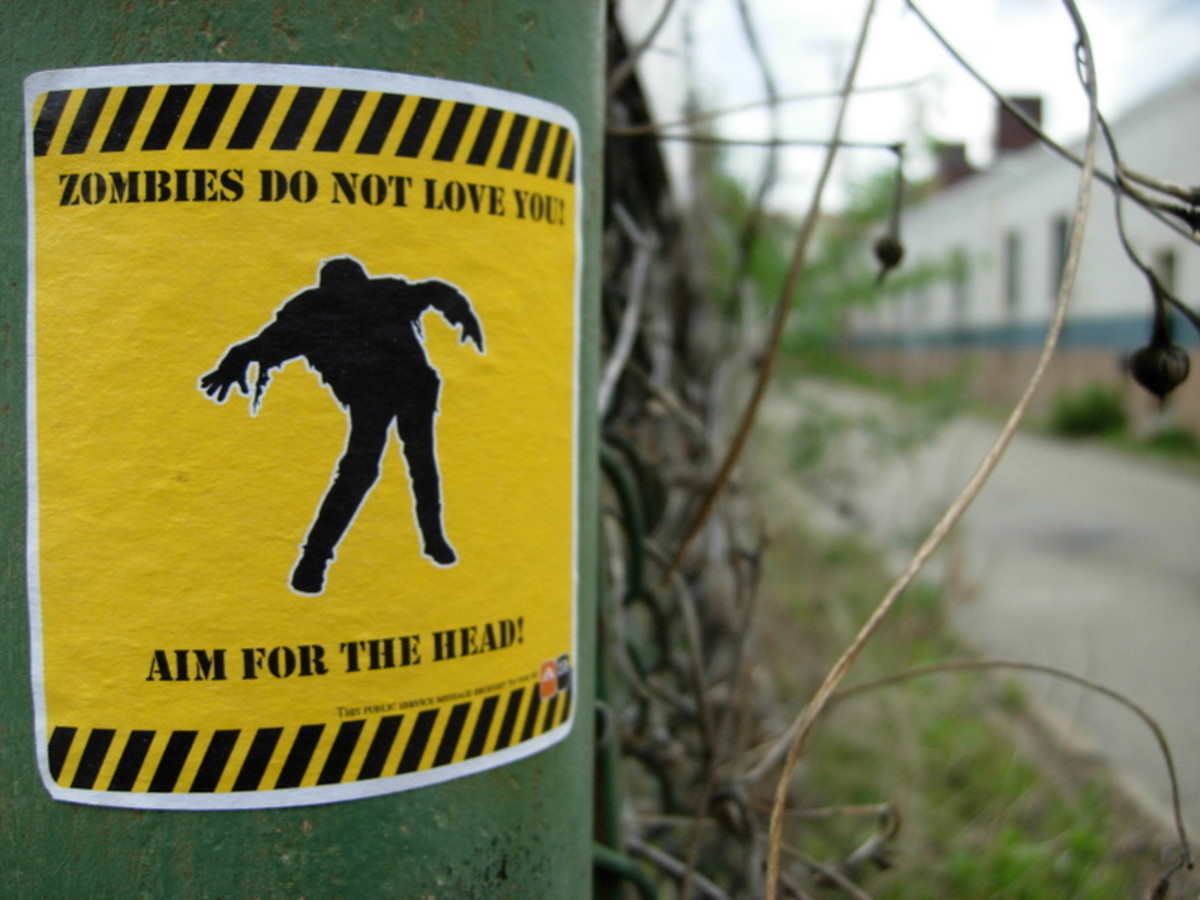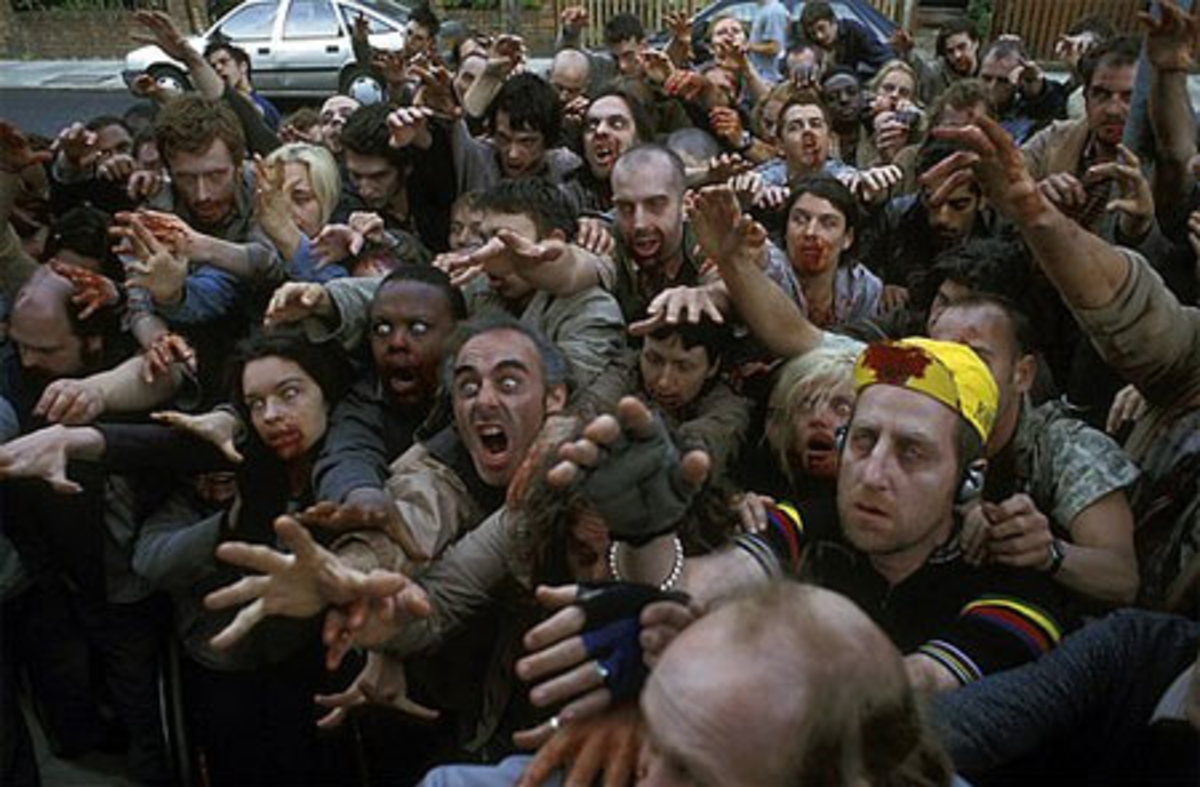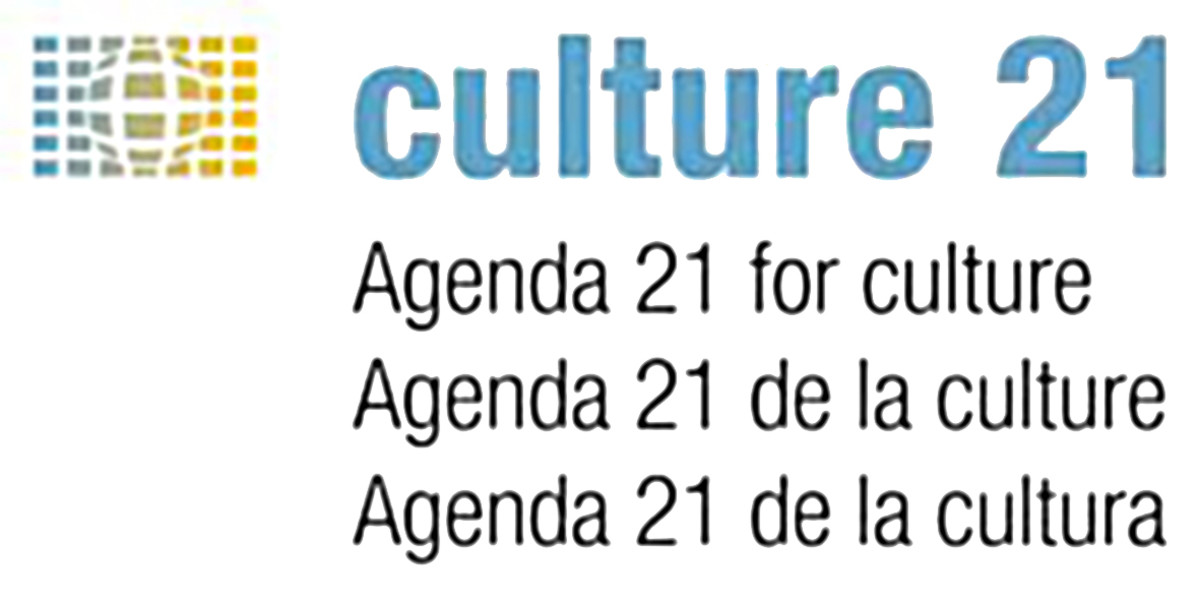Would an Apocalpyse be so Bad?
In this age of mass internetual consumption and corresponding impending doom prophesied by a proliferation of zombie and information blackout movies, it seems inevitable that there will be some kind of apocalypse quite soon. It could involve death on a massive scale, or simply the undoing of the bridges that make up the global village, resulting in the Earth being as big as it used to be before long-haul flight became commonplace.
Because, you see, there is more than one meaning to the term 'apocalypse'. The most common current interpretation involves flesh-eating, stumbling monsters that infect their prey with a zombifying virus. It conjures images of burnt out high-rise apartment blocks, shopping centres of empty shops (malls), dark cities with half the streetlights smashed, looting, cars on fire, demolished buildings crawling with trudging, freakish and bloody forms. In this scenario, dull, low moans issue from dark corners, followed by screams that rent the air. The actual definition is a battle between good and evil. Easy.
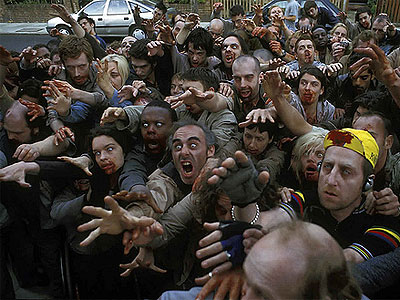
Many of us are already prepared for such an event - not me - with stockpiles of various zombie-killing implements such as garden forks, spades, huge skull-crushing frying pans and ... pepper sprays?
But will the apocalypse involve mindless reanimated corpses with a hunger for human flesh? Well, a very serious and properly researched study by Sloth and Wong (2007) suggests that it could.
Let us stick with this scenario for a moment longer and assume that World War Z is about to happen. How to survive an outbreak of the virus or the release of the nanobots that will cause the reanimation of corpses is well documented. A copy of the Zombie Survival Guide will tell you everything you need to know. I have a copy. It's on my bookcase. I haven't read it yet. But I know someone who has, so I'll be fine.
So, some of us have survived, the zombies and their virus have all been destroyed, along with the communication, power and distribution infrastructures of every country across the globe. What next?
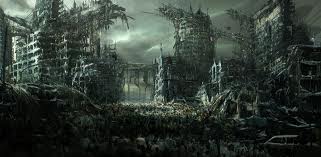
Well, in my view, because I like a simple and quiet life, we really should be grateful to whoever started the zombification process for allowing us to make a fresh start. There seems to be a general consensus that most of the Western world should be bulldozed, that we should switch off the internet and return to the land. What better way to do that than to kill off three-quarters of the population of the world? Oh. No, hang on ... that's a bit macabre, and possibly a tiny bit callous. And while it would be nice for the survivors to have more space in which to move around, perhaps the price is a little too high.
But wouldn't many of us like to abandon civilisation as we know it? Move to a big old house in the countryside, embracing self-sufficiency and finding time to really live?
The supposed result of the zombie apocalypse is that the human population of the Earth will be reduced by roughly 80% (presumably the animal populations will remain the same, and then begin to increase as poaching all but disappears, which is great news). This will mean that survivors will have no problem in finding food supplies, though eventually they will have to farm their own. After, of course, they have disposed of the 5bn dead bodies that will threaten to overwhelm them with the stench of putrefaction. Corpses release large amounts of cadaverine and putrescine, which pose little threat in terms of disease in small numbers. But we're talking about 5bn. Those bodies will need to be disposed of.
After the bodies have been buried/cremated, the survivors could get on with the business of enjoying life. Sounds idyllic. And the human race would get its second chance, hopefully learning very valuable lessons from the almighty mess it made in the 20th and 21st centuries.
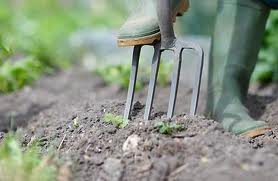
But you'll remember that I mentioned another definition to the term 'apocalypse'. The less well-known meaning is somewhat different to my first. In terms of a filmic equivalent, the second definition is more of A Good Year (Russell Crowe), a path of self-discovery, epiphany and revelation. If we use this definition as the more likely one to describe events or situations that might occur in the future (although, is it really more likely? See Sloth and Wong again, and decide for yourself), what preparations might we need to make?
Well, an epiphany, from my experience, generally tends to be a wholly positive and uplifting experience. During those moments of perfect mental clarity, when we are able to articulate our deepest ambitions and desires, if only for a few moments until we become distracted by the mundane again, what we probably need to hand is a smartphone with a notebook app. Unless the zombie apocalypse has coincided with our personal apocalypse resulting in power outages that mean we can't charge our devices, in which case we'll have to resort to an actual notebook and pen. Epiphanies need to be recorded, otherwise they're quickly forgotten.
Epiphanies tend to involve the realisation that a trigger in our life is making us feel stressed and unhappy. We identify the trigger and takes steps to remove it or lessen its influence. Easy.
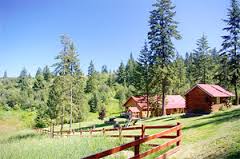
We have two definitions, presenting two different scenarios, both potentially life changing to different degrees. One could wipe out most of the human race; the other could result in one person deciding that more exercise or leisure time will make them happier.
But funnily enough (and I'm taking quite an imaginative leap here for the sole contrived purpose of bringing this hub to a tidy conclusion), the second definition of 'apocalypse' could imply a similar sort of outcome to the first definition, only without the death bit. Or possibly with the death bit. Bear with me.
Revelations seldom result in the following thought: 'I need more stuff, more money and more stress in my life'. Revelations tend to stem from the opposite line of thinking: 'I can't live like this anymore, commuting is killing me, I need to break out of the rat race and be free'.
The film Goodbye World tells the story of what life might be like in an information blackout. It's a wish-fulfillment sort of movie, really, reflecting a widespread feeling of discontent with modern life and all its distractions. Enjoying time with family and friends and back-to-basics forms of entertainment encapsulate the central theme of escapism, escape from constant networking and openness. The film suggests that what many of us want is to shut down, at least for a little while. That's great if you live in the country and can grow your own food. But what about the 3.2bn people who live in cities?
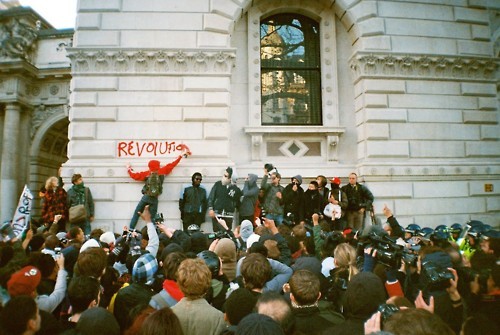
This does sound like a much nicer option. Let's not bother with the zombies, let's all just enjoy a nice, positive apocalypse and go back to how things were in the good old days (if they ever existed - life has always been difficult and brutal). However, if you're thinking about saving the human race from itself, mass revelation just can't work. If we all suddenly experienced the same apocalyptic thought, to jack it all in and move to the country, there would be chaos, possibly riots. We can't all move to the country; there isn't enough of it. This scenario of mass desire for peaceful and gentle revolution could lead to revolt, ironically. Which could, in turn, lead to civil wars. The haves, those with the land, would defend their inheritance on the grounds of heritage. The have-nots would argue that it might be time for a change, that they should be given the right to have their turn.
It's likely that we would see chaos, mayhem, murder, torture, pillaging, havoc, plundering, banditry, despoiling, ransacking, ravaging and terror. In short, what started out as a hope-filled wish to start afresh in idyllic surroundings could result in devastation on a scale similar to that brought about by the zombies. But this second scenario would be worse because the solution would be more difficult to find. The solution to the zombie apocalypse is to finish off the zombies. The solution to civil unrest is ... what? No one's ever found the definitive answer.
Anyway, what you're left with is a greatly reduced global population, though possibly not reduced by 5bn. But the reduction would be enough to lead to the same outcome as the zombie apocalypse - green and pleasant lands tilled by free peoples, happy and strong.
Either way, the road to Elysium is paved with blood.
